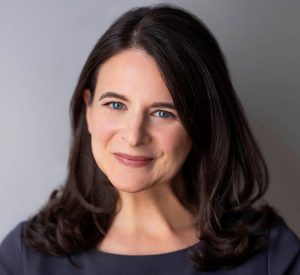
When author and former White House speechwriter Sarah Hurwitz was growing up, she did what many Jewish children do—went to services at her local synagogue twice a year, enjoyed seders with family and friends, and attended Hebrew school as she worked her way to the big day: her Bat Mitzvah. But when the day finally came and went, 13-year-old Sarah didn’t feel especially connected.
“I was a kid, so I didn’t really understand what was going on and found the services and classes long and hard to understand,” Sarah says. “Then, after I my had my Bat Mitzvah, I kind of drifted away. In those two services, seders, and Hebrew school, I just hadn’t seen all that Judaism had to offer.”
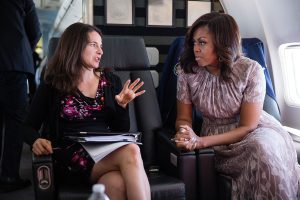
That’s now changed. As an adult, Sarah had found tremendous career success as chief speechwriter for First Lady Michelle Obama, and prior to that, as senior speechwriter for President Barack Obama. But after breaking up with her boyfriend at age 36 and sitting at home one evening assessing life, she received an email from her local JCC about an Intro to Judaism class. She signed up as a means to fill her time, but ended up getting so much more.
“I was really blown away by what I found,” Sarah says. “Studying Jewish ethics, theology, spirituality, holidays, rituals, and history as an adult, you realize how much wisdom and insight Judaism has to offer about how to be a good person, how to lead a worthy life, and how to find spiritual connections.”
That class led to another, and then another. Soon, Sarah was reading hundreds of books and studying with rabbis. “I was just so moved, inspired, and challenged by what I learned and am still learning today,” she says. “You can spend a million lifetimes learning about Judaism and still only have scratched the surface.”
Here, we talk to Sarah more about this journey, which ultimately led to her writing the newly released book, Here All Along: Finding Meaning, Spirituality and a Deeper Connection to Life—in Judaism (After Finally Choosing to Look There):
Q: Why do you think you felt disconnected from Judaism at a young age?
A: A lot of us stop learning about Judaism when we’re 12 or 13, and that’s when we’re old enough to really start appreciating the incredible wisdom and insights it offers. I think one of the reasons why I drifted away was I just hadn’t had a chance to learn what Judaism has to offer me.
The truth is, we put a lot of pressure on Hebrew schools and synagogues. For those of us who stop learning at 12 and then have our own kids, there’s an expectation that the school and synagogue will teach everything about Judaism to our kids—4,000 years of history, holidays, life cycle rituals, ethics, theology, and culture—and that’s not realistic. It’s not something that can be outsourced to a teacher or synagogue.
Q: Was there one particularly transformational moment in your journey that led you to where you are now?
A: Attending my first silent meditation Jewish retreat was a hugely pivotal moment. It was the first time I was exposed to conceptions of God, or The Divine, that didn’t strike me as childish or implausible. The prayers we were doing were really moving and powerful. The rabbis who led them were extraordinary and I just came away from that first retreat with a sense that I could have an adult Jewish spirituality, and that was huge for me. I have done a number of these Awakening the Divine retreats since then.
Q: Did your experiences working in Washington shape your Jewish journey in any way?
A: I think Judaism helped me recognize and better understand why I was working in politics. It helped me better understand the values underlying the work I was doing. That was certainly important, and my colleagues in the White House were so supportive of me when I started learning. They could see this was something very meaningful and special to me, so they were really proud and excited. I remember running into the White House chief of staff right before the December break and he asked what I was doing. I was going to the silent meditation retreat and thought if I tell him, will that be awkward? But I did and he said, “Sarah, I’m so proud of you. What an amazing thing for you to do. It’s such an important part of life.”
Q: At what point did you decide you would write a book about your journey?
A: I found learning about Judaism as an adult to be tremendously difficult. Everything in Judaism is hyperlinked to everything else and there’s no natural place to start. Even simple phrases have so much history behind them. So I found learning as an adult to be hard and the books available to me were either nuts-and-bolts books or very sophisticated academic books. Eventually, I just thought maybe I can write the book I needed when I first started learning—something that would cover the basics while also sharing some of Judaism’s deeper insights and more profound wisdom. I had a lot of fear in writing this book. I am not a rabbi or scholar. This is not an authoritative book on Judaism. This book is about me sharing what has so moved, inspired, challenged, and changed me in Judaism with others, including Jews of all backgrounds and with people who aren’t Jewish. I’ve had very observant Jews tell me they felt like my book resonated with them. I’ve heard from non-observant Jews, Christians, and atheists, who also felt moved by it. I think that’s partially the result of having been a speechwriter. When you are a speechwriter for the first lady or president, you are writing for all of America. I just really wanted to write a book to share what I found for Jews like me who are proud to be Jewish, but don’t really know what that means. They feel a sense of connection, love, and care, but really don’t know much about it or how to act on it. I wanted to say to them, “There’s so much here for you if you’re interested in starting to learn and engage.”
Q: What’s one thing you have learned that you wish you knew back in your teen and young adult years?
A: I wish I had known just how powerful Jewish theology and spirituality is. We have so many conceptions of The Divine. I was the kid who said, “It seems like the Jewish God is a man in the sky who controls everything and punishes you when you’re naughty and rewards you when you’re nice, and I don’t agree with that, so I’m an atheist.” I wish I had known there are a lot of other options in Judaism. I also just wish I had a sense of the profound ethical wisdom Judaism offers. There’s so much guidance and insight about how to be a better person. I didn’t realize how sophisticated and helpful Jewish ethical law is and wish I had known that because I think it would have been really helpful in my life.
Q: How has engaging in Jewish life, practice, and tradition changed your life for the better?
A: People often ask me, “Are you more observant now?” and the answer is yes, I am more observant. But I’m not shomer Shabbat. And other than not eating pork or shellfish, I don’t keep kosher. And I’m rarely in synagogues. So some people say, “Well, you really aren’t more observant.” But last I checked, there are 613 mitzvot. And it’s strange that people try to assess my level of observance solely by my adherence to ritual mitzvot. They don’t ask whether I conduct my business affairs honestly, or give tzedakah, or am careful with my speech. Having studied the laws around these issues, however, I am more observant of them—though I still mess up and fall short far too often. And I think it might be helpful if we were a little more thoughtful about how we measure Jewish observance.
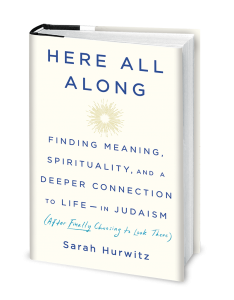
Want More From Sarah?
Listen as she talks about her new book on this podcast!
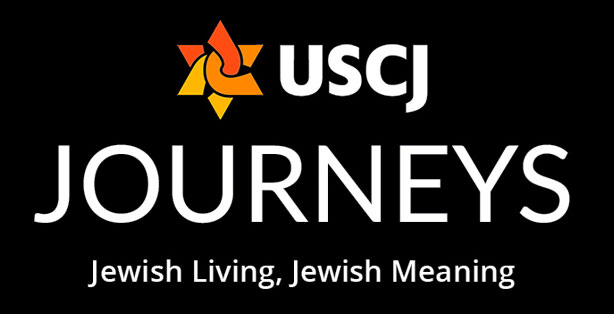
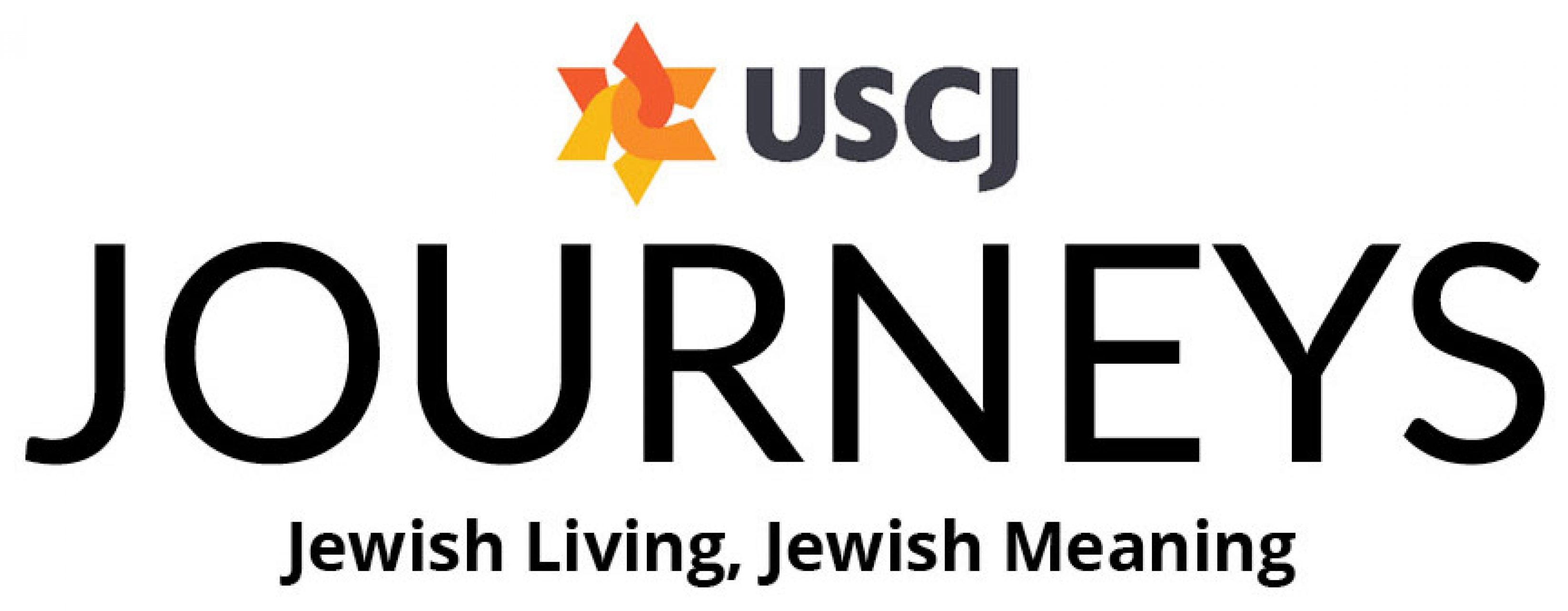
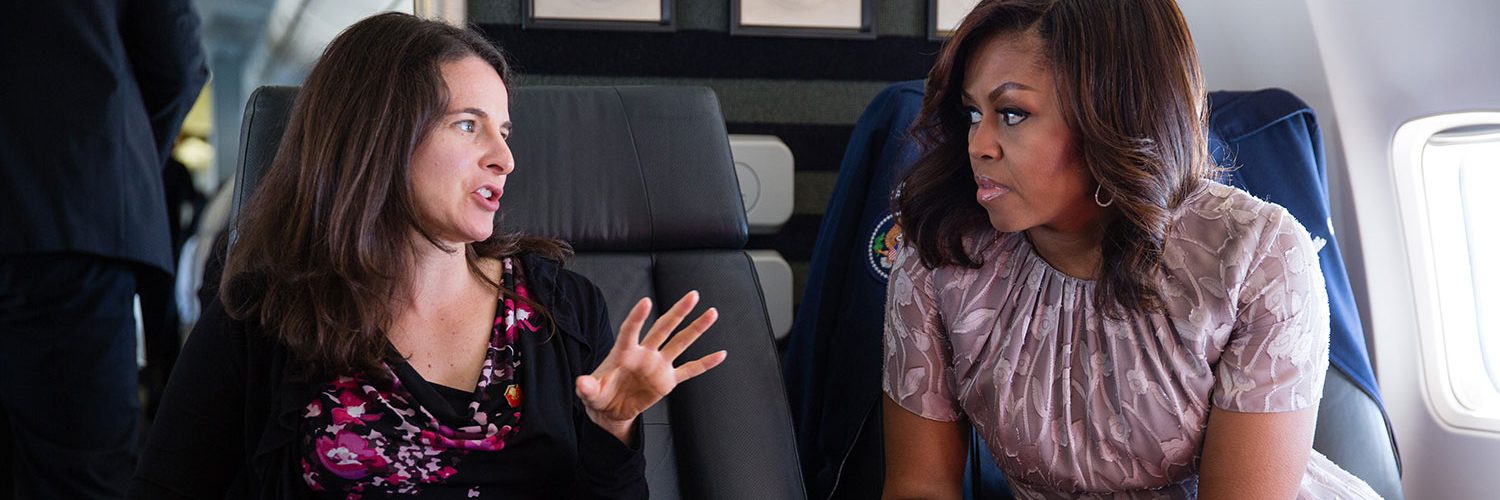

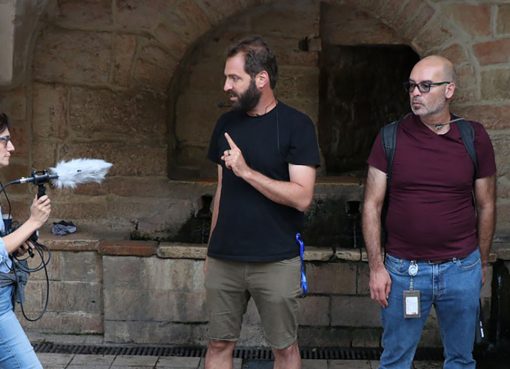
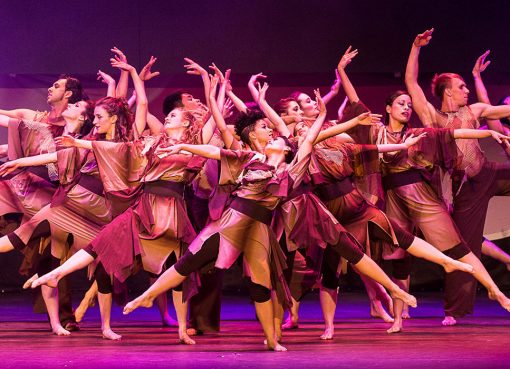
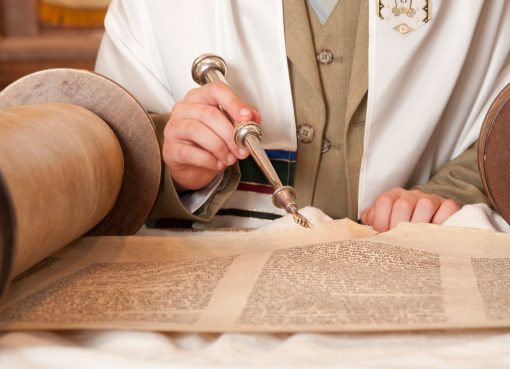

Comment here